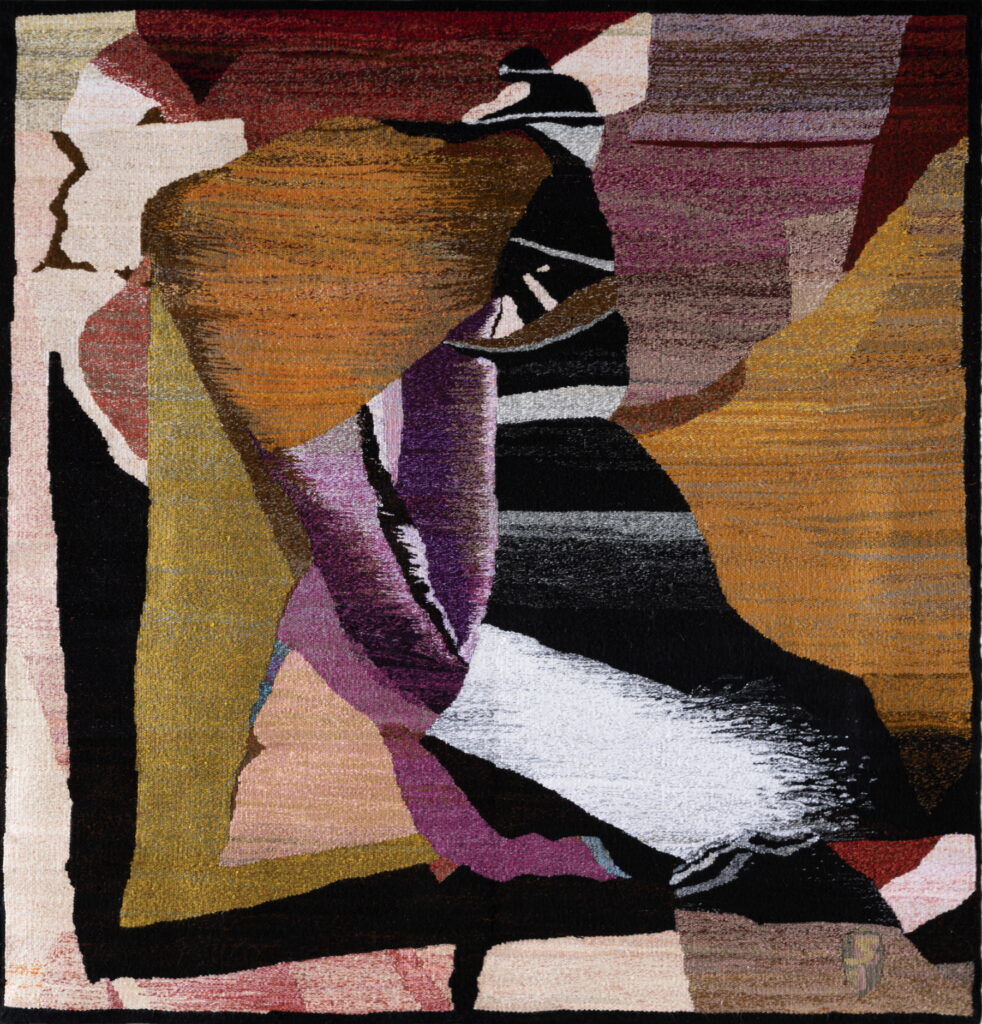I am black, but comely… O ye daughters of Jerusalem, as the tents of Kedar, as the curtains of Solomon
Song of Songs 1:5
Look not upon me, because I am black, that the sun hath tanned me, They made me keeper of the vineyards; But mine own vineyard have I not kept
Song of Songs 1:6
Series: WOMEN IN THE BIBLE: THE HEROINES AND THE HARASSED
Title: I Am Black
Size: 1.37m x 1.45m (54in x 57in)

Yes, I am black! and radiant—
O city women watching me—
As black as Kedar’s goathair tents
Or Solomon’s fine tapestries.
Will you disrobe me with your stares?
The eyes of many morning suns
Have pierced my skin, and now I shine
Black as the light before the dawn.
And I have faced the angry glare
Of others, even my mother’s sons
Who sent me out to watch their vines
While I neglected all my own.
(translation: Marcia Falk)
The Song of Songs—or the Song of Solomon—is intriguing to me for many reasons. There are several interpretations of the poem: a Biblical love song which relates, variously, to young unrequited romance, a conversation between man and God, or an emotional complaint by a young woman of unjust treatment by those who have power over her and are, perhaps, jealous of the foreigner amongst them.
In I Am Black I chose to portray the beautiful and emotional woman (Shulamith) who eloquently sings her frustration with her bitter plight—that of being different in appearance than those around her and, therefore, taken advantage of and not accepted. There is power and courage in her voice. She is a woman of intense emotions. I use the abstract shapes and warm tones of the wool surrounding the central figure to insinuate the exotic and passionate nature of the speaker.
Anyone who has experienced the frustration felt at unjust rejection quickly establishes an understanding of the power in Shulamith’s poignant situation, made especially strong by the fact that, as an exception, we hear her speak directly in the first person.
The Rabbis taught: ”All the writings are holy, but the Song of Songs is the Holy of Holies.”
Back to the Women of the Bible Series

